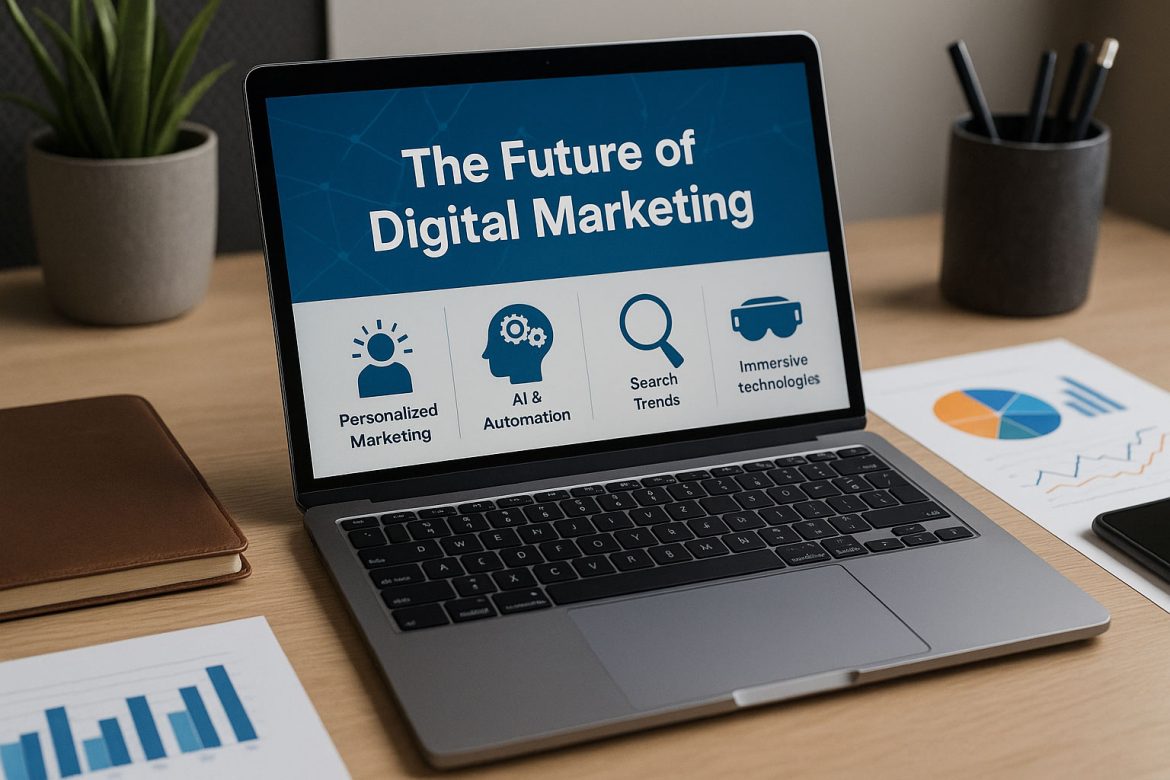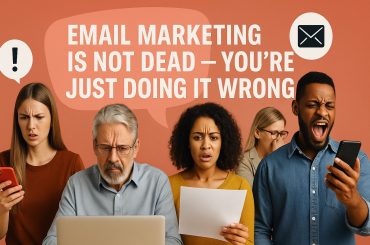Digital marketing has undergone transformative changes over the past decade, fueled by rapid advancements in technology, evolving consumer behaviors, and increasingly sophisticated data analytics. As we move further into 2025 and look beyond, the landscape continues to evolve at an unprecedented pace. The future of digital marketing will be characterized by hyper-personalization, ethical data usage, immersive technologies, AI integration, and a growing emphasis on sustainability and authenticity. This essay explores the key trends, challenges, and opportunities that will define digital marketing in 2025 and beyond.
1. The Rise of Hyper-Personalization
In 2025, personalization will go far beyond inserting a customer’s name in an email. Powered by artificial intelligence and big data analytics, marketers will craft individualized experiences based on real-time behavior, location, interests, and predictive analytics. Hyper-personalization will be critical in creating meaningful connections with consumers who are increasingly demanding relevance and value.
- Real-time Content Adaptation: Websites and apps will dynamically change content based on user profiles and behavior.
- AI-Powered Recommendations: Advanced recommendation engines will anticipate customer needs before they express them.
- Predictive Behavioral Targeting: Marketers will use AI to predict what customers want next, leading to proactive marketing strategies.
2. AI as the Core Engine of Marketing
AI is no longer a supplementary tool—it has become the backbone of digital marketing operations. By 2025, AI will be deeply embedded in every aspect of marketing, from content creation to campaign optimization.
- AI Content Generation: Tools like ChatGPT and Jasper will produce high-conversion copy, personalized video scripts, and even dynamic ads.
- Automation & Chatbots: AI-driven chatbots will deliver human-like customer support 24/7, improving response times and satisfaction.
- Smart Analytics: AI will sift through massive datasets to identify trends, forecast ROI, and optimize spending in real time.
3. Voice and Visual Search Domination
With the proliferation of voice assistants and visual AI, the way consumers search for information is changing rapidly. Marketers must adapt to this shift.
- Voice SEO: Brands will optimize content for conversational keywords and natural language queries.
- Visual Search Optimization: Tools like Google Lens and Pinterest Lens are transforming the way users interact with images. Marketers will invest more in optimizing product images for searchability.
4. Immersive Experiences through AR, VR, and the Metaverse
The line between digital and physical continues to blur. Augmented reality (AR), virtual reality (VR), and metaverse platforms offer new avenues for experiential marketing.
- AR Try-Ons: Brands in fashion and cosmetics will use AR for virtual try-ons to increase engagement and reduce return rates.
- VR Brand Worlds: Companies will build immersive VR experiences that showcase their products or tell stories in gamified environments.
- Metaverse Marketing: As digital real estate grows, marketers will experiment with advertising in virtual spaces and hosting branded experiences in metaverse worlds like Decentraland or Meta’s Horizon Worlds.
5. Data Privacy and Ethical Marketing
As personalization deepens, so does concern over privacy. Consumers are more aware of how their data is collected and used, and governments are responding with stricter regulations.
- Cookieless Marketing: With the decline of third-party cookies, marketers will rely on first-party data and consent-driven marketing.
- Transparent Data Policies: Brands that clearly communicate how they use data will gain trust and loyalty.
- Ethical AI Use: Companies will need to ensure AI is used fairly, without bias or manipulation, especially in targeting vulnerable audiences.
6. Human-Centered and Value-Driven Branding
Consumers in 2025 want to support brands that align with their values. Purpose-driven marketing will move from being a trend to a necessity.
- Sustainability Messaging: Eco-conscious branding will influence purchasing decisions, particularly among Gen Z and Gen Alpha.
- Authentic Storytelling: Audiences crave transparency and relatability. Influencers and UGC (user-generated content) will play bigger roles in shaping brand narratives.
- Community Engagement: Brands will move toward community building through loyalty programs, exclusive forums, and co-creation initiatives.
7. Multichannel Integration and Omnichannel Excellence
Consumers don’t differentiate between online and offline experiences anymore. The future belongs to brands that can provide seamless, integrated experiences across platforms.
- Unified Commerce Platforms: Integration of CRM, POS, and marketing tools will allow a 360-degree view of the customer journey.
- Cross-Platform Targeting: Brands will continue using programmatic advertising to deliver consistent messaging across TV, mobile, web, and out-of-home (OOH) channels.
- Conversational Commerce: Messaging platforms like WhatsApp and Messenger will evolve into full-service shopping platforms.
8. The Evolution of Social Commerce
Social media is becoming a major sales engine. By 2025, it won’t just influence buying decisions—it will facilitate the entire purchasing journey.
- In-App Purchases: Instagram, TikTok, and Snapchat will integrate native checkout experiences.
- Shoppable Videos: Influencers and creators will enable one-click purchases through engaging video content.
- AI Influencer Marketing: AI-generated virtual influencers will work alongside human creators to deliver tailored brand experiences.
9. The Integration of Blockchain and Web3
Blockchain will influence digital marketing through decentralized identity verification, transparent supply chains, and tokenized loyalty programs.
- NFT-Based Loyalty Programs: Brands will reward customer engagement with NFTs that unlock exclusive content, discounts, or community access.
- Decentralized Platforms: Web3 tools will give users more control over their data, challenging traditional ad models and pushing marketers to create value in exchange for attention.
10. Continuous Learning and Marketing Agility
Finally, the pace of change requires marketers to be lifelong learners. Success in 2025 and beyond will depend on how quickly teams can adapt, test, and innovate.
- Agile Marketing Frameworks: Teams will adopt agile methodologies to rapidly test and iterate campaigns.
- Learning Ecosystems: Marketers will rely on ongoing education, certifications, and AI-driven training platforms to stay competitive.
- Cross-Skill Talent: Future marketers will need hybrid skills—understanding analytics, storytelling, tech tools, and human behavior.
Conclusion
The future of digital marketing is not only about tools or platforms—it’s about mindset. It’s about embracing innovation while grounding campaigns in ethics, empathy, and purpose. By focusing on human connection through data-informed strategies and cutting-edge technologies, marketers in 2025 and beyond will have the power to build meaningful, memorable, and measurable brand experiences.
To succeed in this evolving landscape, businesses must be proactive, adaptive, and relentlessly customer-centric—because the digital future isn’t waiting. It’s already here.




